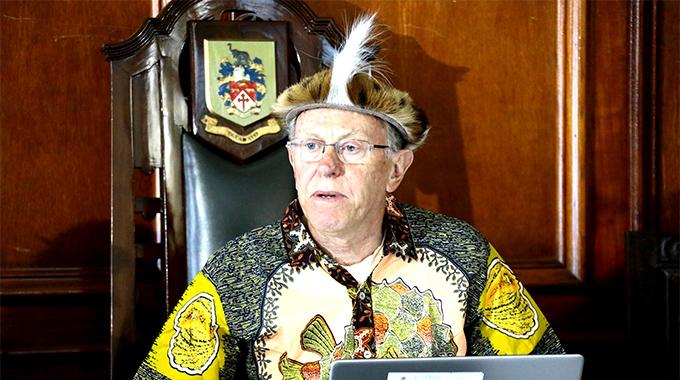News / National
Fears of water privatisation in Bulawayo as Dutch company is roped in
22 Nov 2024 at 08:26hrs |
0 Views

There are growing concerns among stakeholders in Bulawayo that the municipality might be attempting to privatise the city's water management services through the back door. Reports have surfaced indicating that the local authority has engaged Vitens Evides International (VEI), a Dutch water utility company, to manage Bulawayo's water and sanitation services, raising fears of potential privatisation.
Critics fear that the council may follow the same path it took with the privatisation of vehicle parking services through Tendy Three Investments and the controversial Egodini rank project, which was awarded to Terracotta Trading Limited (TTPL) for the construction of a US$60 million mall. To date, the mall has not materialised, with only a bus terminus constructed.
Council engineer Robson Manatsa attempted to address the growing concerns yesterday, insisting that the engagement with VEI was not a move toward privatisation. He stated that the project would be a partnership between the Dutch company and the local authority, and that VEI would not own the water services. According to Manatsa, the project, known as the VEI Waterworks Project, would remain wholly owned by the municipality.
"Zimbabwe is isolated in terms of adopting water utility projects. There won't be any privatisation of water," Manatsa clarified. "It is solely owned by council, and residents will be able to question councillors, who will, in turn, question the local authority on its transparency."
However, stakeholders, including the Matabeleland Institute for Human Rights and the Bulawayo Water Assembly, have raised concerns about the transparency of the process. The two groups recently held a water financing indaba, calling for clearer communication from the council regarding the project's future.
Silas Silaigwana, a researcher with the Matabeleland Institute for Human Rights, emphasised the need for transparency, stating, "People are afraid that the entity will end up being privatised. The sustainability of the project will only be promoted by engaging residents and stakeholders. There is a void in access to information."
Silaigwana's comments reflect wider public concerns, with many questioning the long-term viability of the project if it is not fully transparent and inclusive of community input.
Bulawayo is currently facing its worst water crisis in years, with residents enduring long periods without access to water, which has only heightened anxieties about the future of the city's water services. Many fear that any move towards privatisation could worsen the situation, further depriving residents of the essential resource.
While the council insists that the project is aimed at improving the city's water infrastructure, stakeholders are calling for open dialogue to ensure that any changes to the management of the city's water resources are made with full public involvement and accountability.
Critics fear that the council may follow the same path it took with the privatisation of vehicle parking services through Tendy Three Investments and the controversial Egodini rank project, which was awarded to Terracotta Trading Limited (TTPL) for the construction of a US$60 million mall. To date, the mall has not materialised, with only a bus terminus constructed.
Council engineer Robson Manatsa attempted to address the growing concerns yesterday, insisting that the engagement with VEI was not a move toward privatisation. He stated that the project would be a partnership between the Dutch company and the local authority, and that VEI would not own the water services. According to Manatsa, the project, known as the VEI Waterworks Project, would remain wholly owned by the municipality.
"Zimbabwe is isolated in terms of adopting water utility projects. There won't be any privatisation of water," Manatsa clarified. "It is solely owned by council, and residents will be able to question councillors, who will, in turn, question the local authority on its transparency."
However, stakeholders, including the Matabeleland Institute for Human Rights and the Bulawayo Water Assembly, have raised concerns about the transparency of the process. The two groups recently held a water financing indaba, calling for clearer communication from the council regarding the project's future.
Silas Silaigwana, a researcher with the Matabeleland Institute for Human Rights, emphasised the need for transparency, stating, "People are afraid that the entity will end up being privatised. The sustainability of the project will only be promoted by engaging residents and stakeholders. There is a void in access to information."
Silaigwana's comments reflect wider public concerns, with many questioning the long-term viability of the project if it is not fully transparent and inclusive of community input.
Bulawayo is currently facing its worst water crisis in years, with residents enduring long periods without access to water, which has only heightened anxieties about the future of the city's water services. Many fear that any move towards privatisation could worsen the situation, further depriving residents of the essential resource.
While the council insists that the project is aimed at improving the city's water infrastructure, stakeholders are calling for open dialogue to ensure that any changes to the management of the city's water resources are made with full public involvement and accountability.
Source - southern eye
Join the discussion
Loading comments…



























